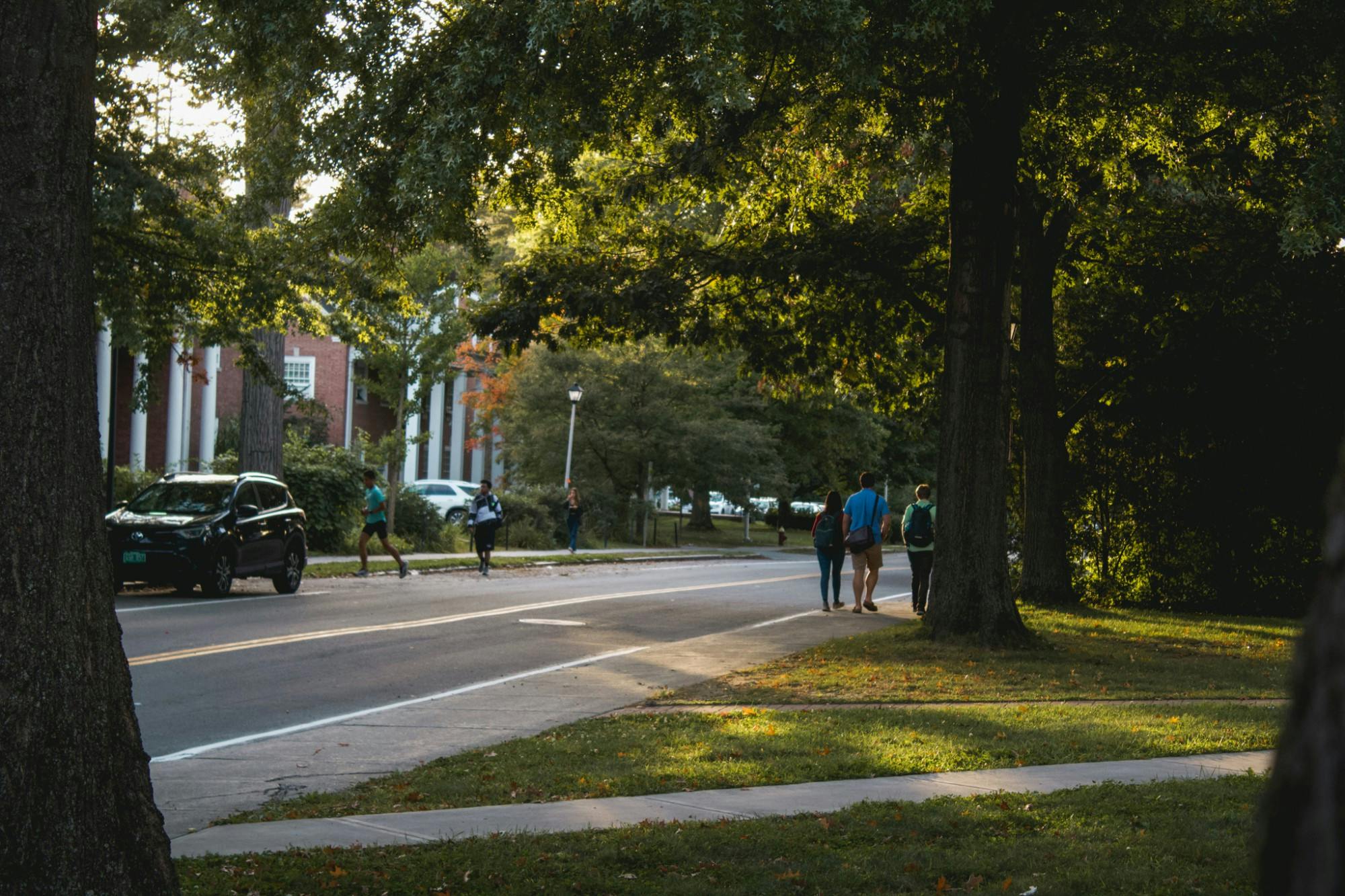With 374 bids extended by the Interfraternity Council and 297 by the Inter-Sorority Council, the fall formal recruitment process has concluded for most Greek houses across campus. The number of bids extended by fraternities increased by 30 compared to last fall, up from 344. Meanwhile, despite a historic high of registration, the ISC’s number of new members decreased by 11 members from 308 last fall.
“I’m glad fall rush seems to have wrapped up without any big issues,” IFC president Matt Law ’23 said. “It looks like people are happy where they ended up.”
According to assistant dean of residential life and director of Greek life Josh Gamse, 462 potential new members signed up for sorority recruitment. This 64.3% retention rate is down from last fall’s 73.9%, according to an email from ISC president Gerol Fang ’23. In winter 2022, sorority rush had a retention rate of 76%, according to prior reporting by The Dartmouth. Gamse said that because the IFC does not have a centralized registration system, the council does not have a record of total potential new members.
Although Gamse, Law and Fang all declined to provide the bid numbers for individual Greek houses, some representatives from individual houses provided the numbers of bids they extended this year.
Gamma Delta Chi fraternity extended around 30 bids — slightly more than usual — according to an email from president Nick Howard ’23. Alpha Xi Delta sorority extended 44 bids, according to president Stephanie Do ’23, one more than last fall. Like last year, Epsilon Kappa Theta sorority continues to welcome new members through its ongoing open bidding process, according to its president Chloe Jung ’23.
Presidents of the other fraternities in the IFC — Alpha Chi Alpha, Beta Alpha Omega, Bones Gate, Chi Gamma Epsilon, Chi Heorot, Kappa Pi Kappa, Phi Delta Alpha, Psi Upsilon, Sigma Nu, Sigma Phi Epsilon, Theta Delta Chi and Zeta Psi — and sororities in the ISC — Alpha Phi, Chi Delta, Kappa Delta, Kappa Delta Epsilon, Kappa Kappa Gamma and Sigma Delta— either declined to comment or did not respond to emailed requests for comment on their recruitment numbers by press time.
Howard wrote that while the competitiveness of rush at GDX did not change this year, the house saw interest from different people.
“There seemed to be more breadth in the range of backgrounds of those interested in GDX,” Howard said. “That’s really the most exciting part to me — we have tons of super interesting individuals joining GDX this year.”
Similarly, Do wrote that she is looking forward to getting to know the new class of AXiD members.
“Our new class is fantastic,” Do wrote. “I’m so excited to get to know them better. They are so sweet, authentic, fun and bring an overall great energy to the house.”
According to Ben Barris ’25, a new member of Alpha Chi Alpha fraternity, the fraternity rush process is a great opportunity to get to know interesting people around campus. However, he said the process was also socially demanding.
“You definitely need to have a social battery that’s on all the time. For me that was really tough because sometimes I just want to sleep in or watch Netflix,” Barris said. “I think you need to be willing to make sacrifices.”
Additionally, the process of cutting potential new members inherent in the rush process is challenging, Barris said. He said that he saw “a lot of good guys go unaffiliated.”
According to Izzy Squier ’25, who is now a member of Sigma Delta sorority, elements of the rush process can be draining.
“You are getting judged throughout the process, and I definitely did feel the stress of that,” Squier said. “But I think I personally had a pretty positive experience overall.”
But Squier also said she is still happy that she rushed and values the community that a sorority can provide.
“On campus, a lot of the party scenes are in frats and male-dominated spaces,” Squier said. “It’s really nice to be in a non-male-dominated space to just hang out with female or non-male-identifying people. That’s been the best part so far.”
Despite the process being “brutal,” Nina Prakash ’25, a new member of Kappa Kappa Gamma sorority, said she felt that rushing is an important part of social life at Dartmouth.
“Honestly if I were at any other school I probably would not have rushed,” Prakash said. “I feel like there are a lot of other social outlets [at Dartmouth], but if you want to get invited to things you have to rush — not have to, but it’s very helpful.”
In addition to typical stressors, the recruitment process this year was marked by the community’s grief following the death of Joshua Watson ’22 and Sam Gawel ’23. As a result, the IFC and ISC both delayed their formal recruitment processes by one week.
“This has been a tough time for everyone on campus,” Greek leadership council president Andrew Bricklin ’23 said. “I know that both of the councils wanted to respond and try to balance the fact that they don’t want to continue changing rush processes, but we needed to, it was necessary.”
An article covering the recruitment process for the Gender-Inclusive Greek Council will be published soon.




